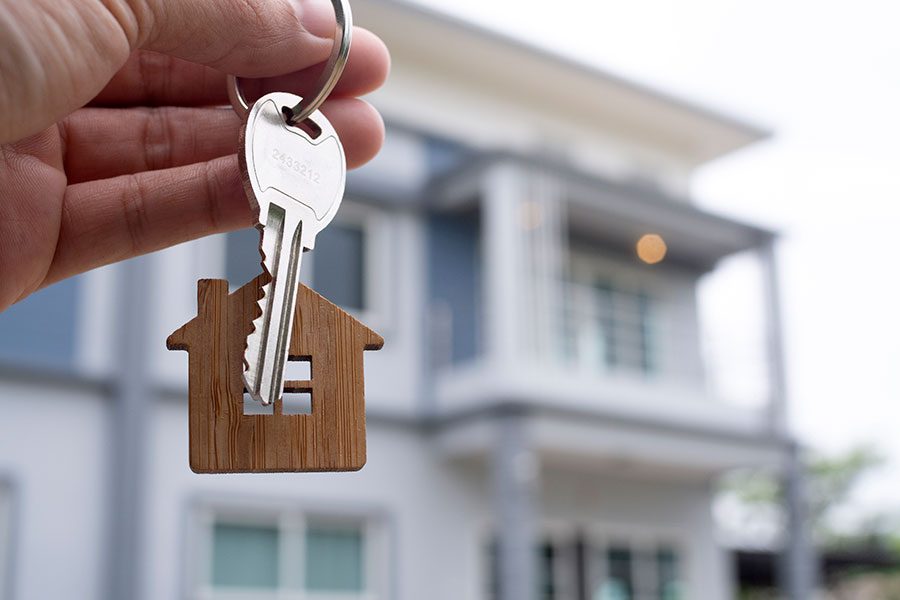A beginner’s guide on how to flip real estate contracts
Updated Thu, Jan 8, 2026 - 8 min read
Top blog articles
Flipping real estate contracts is an intricate process. However, if executed correctly, this popular business model has the potential for lucrative returns. With, relatively low risks. Of course, you need to do your due diligence – from analyzing local markets and repair costs to understanding property values. If you’re an investment newbie, learning how to flip real estate, we have a step-by-step guide for you. Know how to flip real estate contracts, here.
Given the ever-changing nature of the real estate industry, you need to stay well-informed about the regulations in your area. For instance, in Illinois, investors involved in wholesaling real estate contracts are required to hold a real estate license.
What is flipping real estate contracts?

Flipping real estate contracts, also known as wholesaling, is a real estate investment strategy where an individual (the wholesaler) enters into a contract to buy a property and then assigns the contract to another buyer before the closing. Essentially, the wholesaler acts as an intermediary, connecting motivated sellers with interested buyers without actually taking ownership of the property.
The process typically involves three parties: the wholesaler, the seller of the property, and the end buyer. The wholesaler negotiates a purchase agreement with the property seller at a price lower than the market value. Before the closing date, the wholesaler finds an end buyer willing to purchase the property at a higher price. The end buyer then completes the transaction with the original seller. And the wholesaler receives a fee or profit for facilitating the deal.
What skills does flipping real estate contracts require?
Attempting to flipping a real estate requires market knowledge, negotiation skills, and a network of potential buyers. While it can be a lucrative venture, success often hinges on the wholesaler’s ability to accurately assess property values, estimate repair costs, and navigate real estate transactions. It’s important to note that some areas may require wholesalers to hold a real estate license.
How to flip real estate contracts
Achieving success in flipping contracts demands dedicated effort. Fortunately, the task becomes significantly more manageable when you approach it step by step. Here’s how to go about it and generate a lucrative income from flipping real estate.
Find a property that’s undervalued
Discovering the ideal property poses a significant challenge for many investors in today’s real estate market. The process involves pinpointing properties available at reduced prices or those not yet listed but heading in that direction. The key to achieving success lies in having substantial market knowledge and foresight. And, the ability to identify motivated sellers.
Motivated sellers are homeowners who are seeking a quick sale due to significant life events such as divorce, family deaths, or financial challenges such as foreclosure. In some cases, the property might be in disrepair, and the owner lacks the time or funds for necessary fixes.
Another effective strategy involves visiting the local courthouse to review recent default filings. Delinquent mortgages are public information accessible to anyone.
Your focus should be on those wanting to exit their current real estate situation. It could be property owners eager for a quick sale or those facing default. In a way, this sense of urgency becomes advantageous for flippers during negotiations.
Determine the property value
The key to profitability in real estate contract flipping is in securing a property below its market value that can be lucratively resold after enhancements. If the property doesn’t show the potential for a significant increase in value with reasonable repair costs, it’s not a favorable choice.
Conduct a thorough analysis of your local markets, closely examining recently flipped properties to gauge the area’s expenses and returns. Delve into the specifics of comparable homes and necessary repairs to enhance your accuracy in estimating repair costs. Without comprehensive details, finding a real estate investor willing to take on your contract becomes a nearly impossible task.
How do you calculate how much an investor is likely to pay for a property?
You can use the maximum allowable offer or MAO formula.
MAO = (ARV x 0.70) – RE – CC
ARV is the anticipated value of the property after renovations, RE signifies the estimated repair costs, and CC denotes the closing costs associated with the transaction.
MAO is how much you should expect to be offered by an investor for that particular property.
Read more: What is a pro forma in real estate?
Negotiate the contract
The next step is to negotiate the contract terms. Owners might be hesitant at first, but by working with them, you can find terms that suit their needs.
When setting up the contract, it’s crucial to be clear and precise, leaving no room for confusion. Make sure everyone understands the intentions to resell the contract. Consider hiring an experienced real estate agent or attorney to review the contract details before finalizing. Once the contract is signed, you can then transfer the agreement to the investor.
Read more: What does it mean when a house is under contract
Find the right buyer

Real estate wholesalers often identify potential buyers early in the negotiation process for a flipping contract, minimizing overall risk. However, it’s usually not until this stage that you actively find a buyer.
Begin marketing the property to investors, emphasizing its potential. Share the insights from your research on the property’s value and illustrate the benefits for investors. Depending on your network, you could secure the right buyer quickly. It’s beneficial to continuously expand your list of potential investors to ensure a reliable pool of prospective buyers.
Close the deal and collect your fees
Now comes the crucial step of finalizing the deal. Engage a seasoned title company with a track record of working with wholesale real estate buyers. This collaboration ensures a seamless progression through the closing process. The title company takes charge of concluding the transaction between the buyer and seller. And the buyer, in turn, compensates you for your services by paying the assignment fee.
How profitable is it to flip real estate contracts?
The profitability of flipping real estate contracts is contingent on your agreements with both buyers and sellers. While there’s no specific ceiling on potential earnings, it’s essential to recognize that deal completion is not guaranteed.
Your profitability hinges on the volume of contracts you can successfully transfer and your proficiency in accurately assessing property values. Closing wholesale deals is a time-consuming process. And, the time invested directly impacts the amount of profit you ultimately take home.
Typically, real estate contract flippers earn a few thousand dollars for each successfully completed transfer. The precise amount varies based on negotiations with the end buyer. Establishing strong relationships with investors acting as end buyers enables you to create a consistent income stream through wholesaling.
What are the pros and cons of flipping real estate contracts?
Like all real estate investments, weighing the pros and cons is a smart idea. It will help you make an informed decision regarding the investment strategy.Pros Cons Requires low initial capital investment To generate significant income, investors may need to engage in many deals There is lesser risk Success requires a thorough evaluation of potential deals It’s a safe entry point for investors Demands commitment of time and effort Provides a swift return on investment compared to other real estate strategies Success is influenced by real estate market conditions
Key takeaway
Flipping real estate contracts is an investment strategy designed to generate income without directly acquiring a property. Instead of buying and reselling for profit, the investor focuses on linking discounted properties with potential buyers.
In this role as an intermediary and facilitator, the investor receives a lump sum for orchestrating the contract exchange.
Read more: Real estate lead generation ideas
FAQs
How quickly can you flip a property?
The typical timeframe for the entire process, from acquisition to sale, ranges from six months to a year. It depends on the property and how experienced the flipper is. A quicker sale generally translates to a higher profit margin.
Is flipping properties risky?
The most obvious risk associated with house flipping is financial loss. Sometimes, you may invest 4 to 6 months in renovating a property only to find that its sale results in a loss.
How can I mitigate risks in flipping real estate contracts?
It’s a smart idea to thoroughly research properties, accurately estimate repair costs, and continually expand your network of potential buyers. Staying informed about market conditions is important to flipping real estate.
Read more: Escrow to mortgagor disbursement
Do I need a real estate license to flip contracts?
License requirements vary by location. In some areas, such as Illinois, having a real estate license is necessary for wholesaling real estate contracts.
Read more: What does NOI mean in real estate









